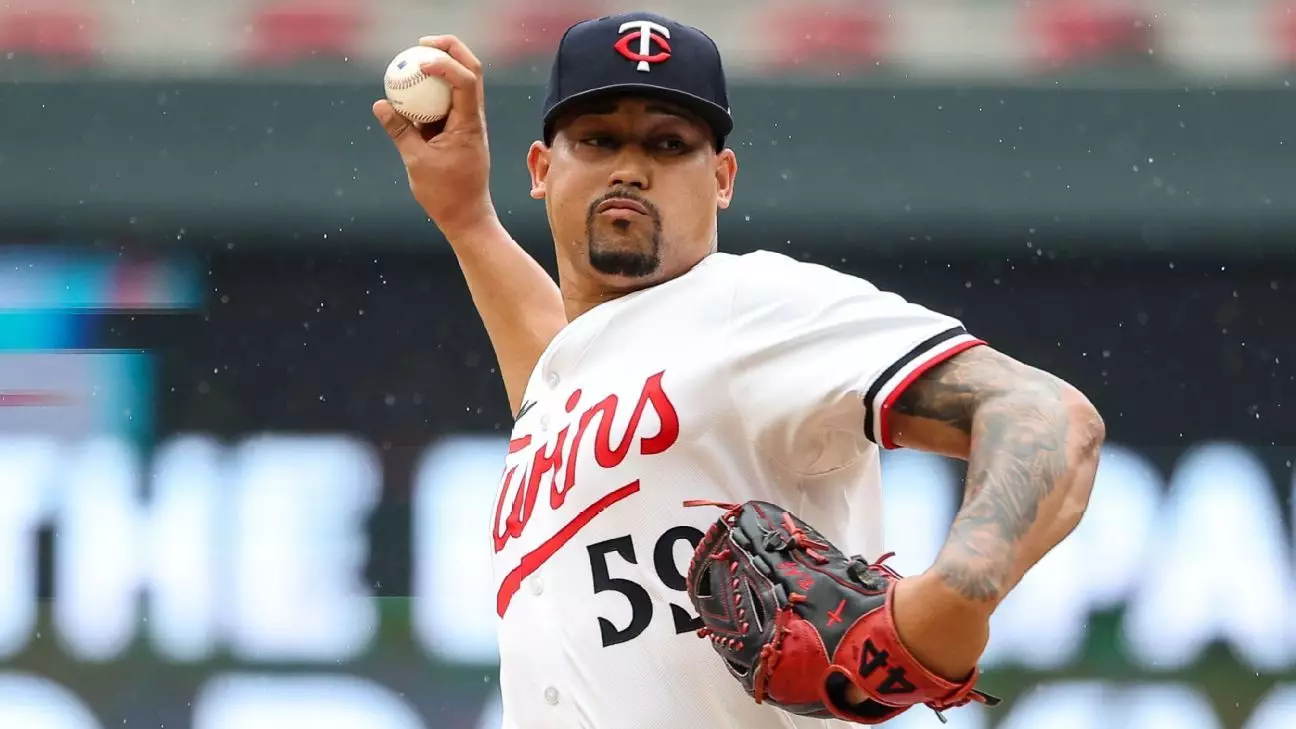In a daring and calculated move, the Philadelphia Phillies have dramatically reshaped their bullpen by acquiring one of the league’s most formidable relievers, Jhoan Duran from the Minnesota Twins. This transaction underscores the team’s aggressive approach to maximize their championship chances this season. Duran’s reputation as an elite closer stems from a lethal fastball, averaging over 100 mph, complemented by an effective mid-80s curveball. His addition signals a clear intent to bolster a bullpen that has historically been a weak link for the Phillies. The team parted with key prospects including Eduardo Tait, a promising catcher with a high ceiling, and Mick Abel, a talented young pitcher with extensive team control. This price reflects both the perceived value of Duran and the Phillies’ willingness to sacrifice future potential for immediate success.
The Phillies’ front office, led by President of Baseball Operations Dave Dombrowski, has long exemplified a willingness to relinquish prospects to seal high-impact deals. This strategy underscores their core philosophy: prioritize winning now rather than delay gratification or rebuild gradually. Dombrowski’s track record, from trading for Carlos Estevez last year to this high-profile move, demonstrates a consistent pattern of aggressive maneuvering. The decision was also influenced by Duran’s contractual situation, as he is under team control until after the 2027 season, making him a long-term asset rather than a rental. Their focus on securing a player with both immediate impact and sustained value shows strategic foresight in a season where every game carries weight.
The Phillies’ Postseason Ambitions and Critical Bullpen Gaps
While their rotation remains robust and their offense boasts power hitters like Bryce Harper and Kyle Schwarber, the Phillies have struggled significantly in late-game situations. With 16 blown saves to date, they rank among the worst in the National League, revealing a glaring vulnerability in their bullpen management. The inconsistent closer situation has been compounded by injuries and suspensions, notably Jose Alvarado’s 80-game ban due to a PED violation, which leaves the team without one of their most reliable relievers during crucial playoff weeks. The team has experimented with multiple pitchers in the closing role, but none have been able to cement their status, leading to a reliance on a patchwork of options.
The addition of Duran, therefore, is more than just acquiring another reliever; it’s a declaration that they are all-in on a deep postseason run. Manager Rob Thomson’s enthusiastic endorsement of Duran as “one of the best closers in baseball” highlights the positive internal sentiment about the move, suggesting a shift in confidence within the team’s bullpen staff. The Phillies’ current predicament exemplifies how a lack of consistent late-inning options can derail a deep playoff run, and Duran’s proven dominance could be the final piece needed to close out tight games.
Balancing Immediate Wins Against Future Prospects
The Phillies’ roster history reveals a pattern: the team values winning now, even at the expense of long-term prospects. This trade reflects a push to maximize their window of contention, especially given the aging profiles of key players like Schwarber and catcher J.T. Realmuto. Both are eligible for free agency at season’s end, intensifying the urgency to capitalize on their current abilities. The industry perceives the Phillies as being in their championship window, and Dombrowski’s decision not to trade promising assets like Andrew Painter shows an inclination to prioritize proven talent over speculative prospects.
The prospects dealt—Tait and Abel—are highly regarded. Tait’s offensive potential at Single-A is noteworthy, and Abel’s recent progress to the majors this season made him a valuable commodity. Yet, the risk of losing these future pieces is deemed an acceptable trade-off for a chance at a championship. Such moves are inherently fraught with risk, but Dombrowski’s confident outlook suggests that the team believes their current core, complemented by strategic acquisitions like Duran, can contend for a World Series title.
The Broader Implications of the Phillies’ Bold Strategy
Philadelphia’s blockbuster move sends a clear message to rivals: they are not content to watch from the sidelines. As the team trails the NL East-leading New York Mets by a slim margin, every win and strategic decision becomes magnified. The Phillies’ willingness to pay a premium for a dominant reliever indicates a recognition that every playoff game can often be decided by a single inning. This buy-in to high-stakes trading illustrates a mindset committed to seizing opportunities rather than waiting for future seasons.
Furthermore, this move sets a precedent for the franchise, highlighting an ambitious culture that aspires to maintain their competitiveness at all costs. It signals to fans and rival organizations alike that the Phillies are serious contenders, ready to leverage their resources for immediate glory. In a sport where momentum and late-game execution often determine champions, acquiring a player like Duran might be the strategic difference-maker that propels Philadelphia deep into October, potentially ending a postseason drought and establishing their dominance for years to come.

